implant
Latest

Neuralink successfully implants its chip into a second patient's brain
Neuralink's brain chip has been implanted into a second patient as part of early human trials.
Steve Dent08.05.2024![(From L) Marc, a French patient suffering from parkinson's disease, fitted with a new neuroprosthesis, walks in front of Swiss Professor of neuroscience at the Swiss Federal Institute of Technology in Lausanne (EPFL) Lausanne University Hospital (CHUV) and Lausanne University (UNIL) and co-director of NeuroRestore, Gregoire Courtine, project manager Tomislav Milekovic, project manager and head of Parkinson's activities at NeuroRestore, Eduardo Martin Moraud, swiss neurosurgeon professor and co-director of NeuroRestore Jocelyne Bloch, in Lausanne, on November 3, 2023. Neuroscientists from Inserm, CNRS and the University of Bordeaux in France, together with Swiss researchers and neurosurgeons (EPFL/CHUV/UNIL), have designed and tested a 'neuroprosthesis' designed to correct the walking problems associated with Parkinson's disease. (Photo by GABRIEL MONNET / AFP) / "The erroneous mention appearing in the metadata of this photo by GABRIEL MONNET has been modified in AFP systems in the following manner: [Marc] instead of [Marc Gautier]. Please immediately remove the erroneous mention[s] from all your online services and delete it (them) from your servers. If you have been authorized by AFP to distribute it (them) to third parties, please ensure that the same actions are carried out by them. Failure to promptly comply with these instructions will entail liability on your part for any continued or post notification usage. Therefore we thank you very much for all your attention and prompt action. We are sorry for the inconvenience this notification may cause and remain at your disposal for any further information you may require." (Photo by GABRIEL MONNET/AFP via Getty Images)](https://s.yimg.com/uu/api/res/1.2/tdtK0Xv4W3J2gC_fTGeOZg--~B/Zmk9ZmlsbDtoPTQ2ODtweW9mZj0wO3c9ODMyO2FwcGlkPXl0YWNoeW9u/https://s.yimg.com/os/creatr-uploaded-images/2023-11/5a0bb180-7cd8-11ee-af7e-830ba71eb29d.cf.jpg)
Spinal implant allows Parkinson’s patient to walk for miles
A Parkinson’s patient can now walk 6km (3.7 miles) thanks to an implant targeting the spinal cord. The man, 62-year-old “Marc” from Bordeaux, France, developed severe mobility impairments from the degenerative disease.
Will Shanklin11.06.2023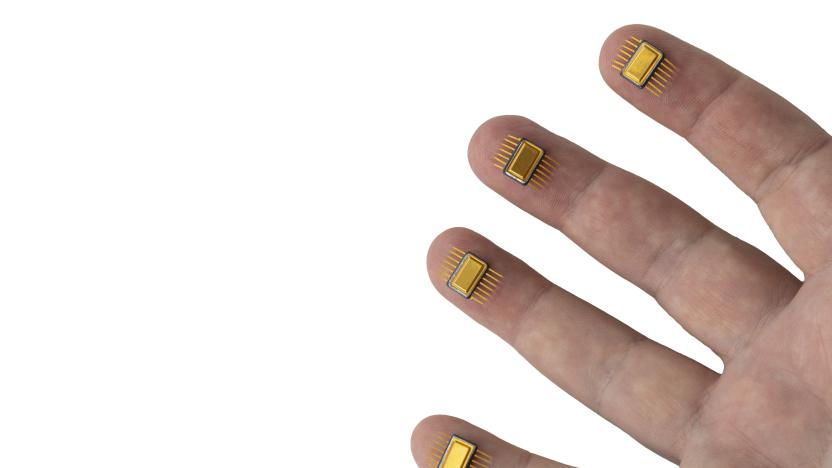
Chip implants get under your skin so you can leave your keys at home
Software engineer Miana Windall has about 25 implants under her skin, ranging from magnets to RFID tech. While that might make your skin crawl if you’re squeamish, “for the most part, they’re not really noticeable,” she told Engadget.
Katie Malone08.11.2023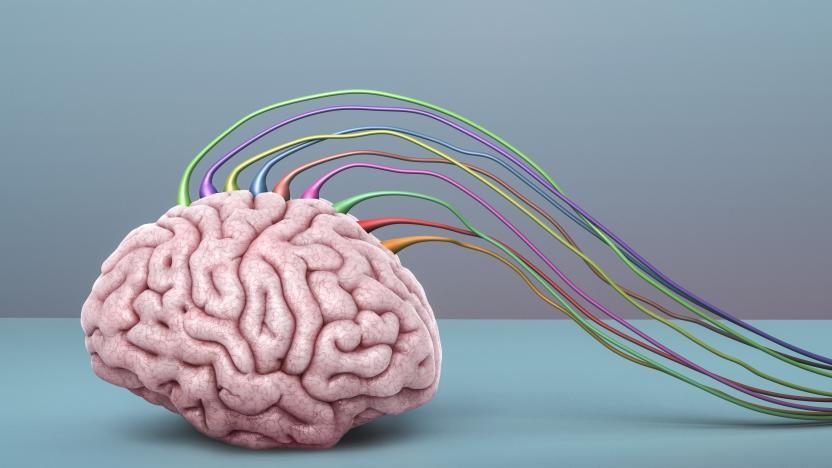
Hitting the Books: Could we zap our brains into leading healthier lives?
In "We Are Electric," Sally Adee delves into two centuries of research into an often misunderstood and maligned branch of scientific discovery, guiding readers from the pioneering works of Alessandro Volta to the life-saving applications that might become possible once doctors learn to communicate directly with our body's cells.
Andrew Tarantola03.04.2023
Amazon Fire TV devices can now stream audio directly to Cochlear hearing implants
Amazon and Cochlear have teamed up on a new feature that streams audio directly from Fire TV devices to hearing implants, using the Audio Streaming for Hearing Aids (ASHA) protocol.
Will Shanklin02.22.2023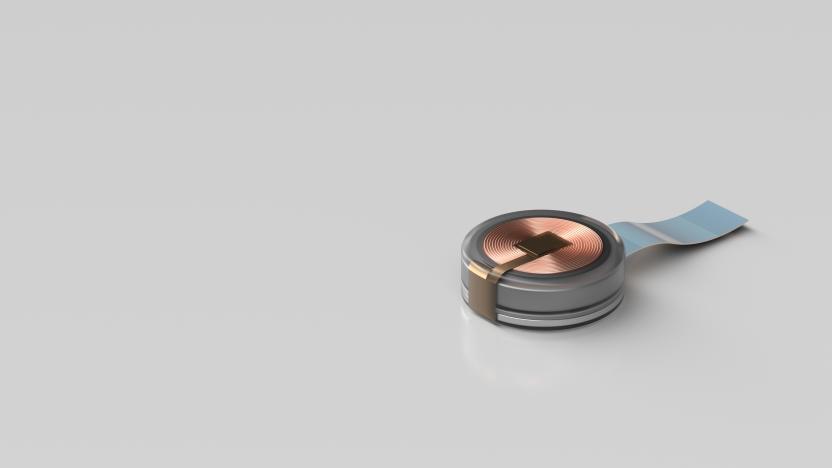
Neuralink CEO Elon Musk expects human trials within six months
After a month-long delay in October, Neuralink held its third “show and tell” event on Wednesday where CEO Elon Musk announced, "we think probably in about six months, we should be able to have a Neuralink installed in a human."
Andrew Tarantola11.30.2022
Elon Musk’s Neuralink delays show-and-tell event to November 30th
On Sunday morning, Elon Musk tweeted that the showcase would take place on November 30th.
Igor Bonifacic10.23.2022
Elon Musk's Neuralink will show brain implant progress at a Halloween show-and-tell
Neuralink will show off its progress in brain implant tech at a Halloween event.
Jon Fingas08.22.2022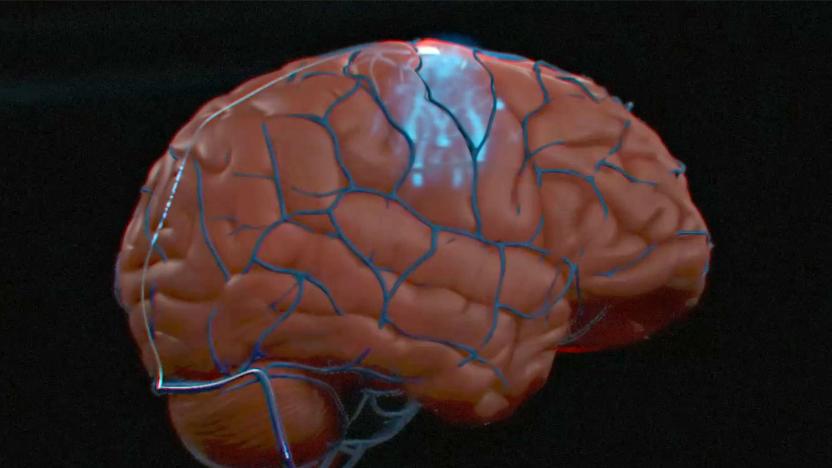
Synchron says it's the first to implant a human brain-computer interface in the US
Synchron says it's the first to implant a human brain-computer interface in the US, beating Elon Musk's company.
Jon Fingas07.19.2022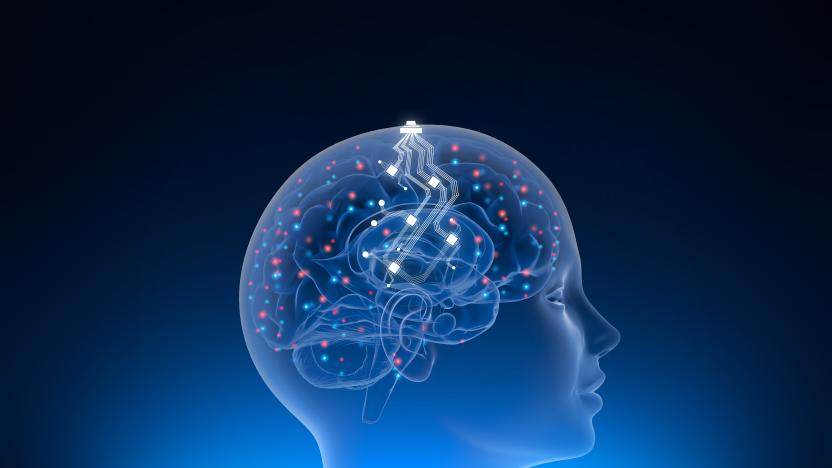
Co-founder of brain implant startup Neuralink leaves the company
Max Hodak has left Neuralink, the brain implant company he co-founded with Elon Musk.
Jon Fingas05.02.2021
Apple warns against putting an iPhone 12 too close to your pacemaker
Apple has issued a warning that the iPhone 12 and MagSafe accessories might interfere with medical implants like pacemakers.
Jon Fingas01.24.2021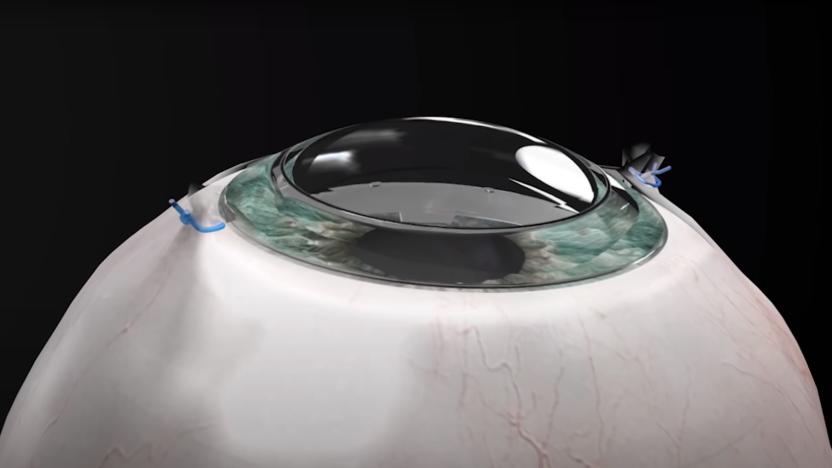
Synthetic cornea helped a legally blind man regain his sight
A legally blind 78-year old man has regained his sight after being the inaugural patient to receive a promising new type of corneal implant.
Steve Dent01.19.2021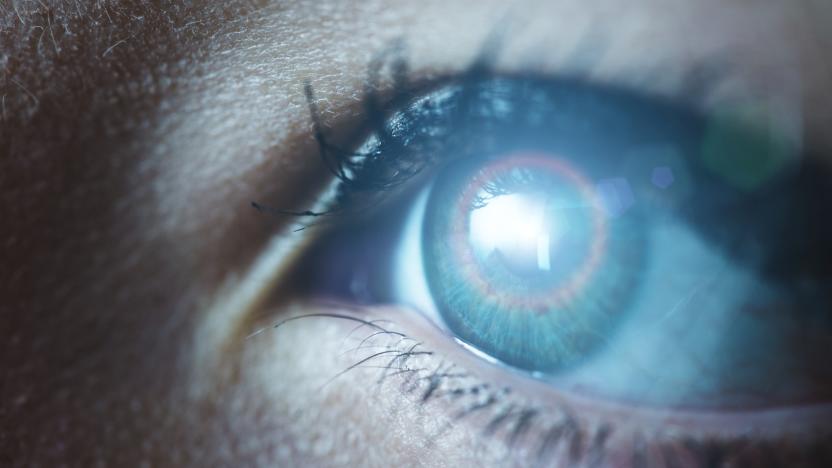
Scientists create a cyborg eye that mimics the real thing
Scientists have created a biomimetic artificial eye that could one day be powered by sunlight.
Jon Fingas05.20.2020
Next-gen hearing implants could overcome inner ear damage
Many hearing implants won't help people with inner ear damage or auditory nerve problems, but the brainstem implants that do frequently do an incomplete job. Soon, however, there might be a far better solution. Researchers have designed a conformable electrode implant that should more effectively counter inner ear damage. It uses body-safe, resilient platinum for electrodes, but overcomes the metal's usual stiffness thanks to micron-level machining inspired by kirigami paper cutting. Once wrapped in silicone, it's highly conductive but can cling tightly to the auditory brainstem and send more targeted signals than in conventional implants.
Jon Fingas10.20.2019
Self-charging pacemakers are powered by patients' heartbeats
Millions of people around the world depend on pacemakers, defibrillators and other life-saving implantable devices. The problem is, their batteries need to be replaced every five to ten years, requiring surgery that's not only expensive, but carries the risk of complications and infections. Now, though, a team of scientists are developing an implantable biomedical device that can be recharged with energy from cardiac activity.
Rachel England02.05.2019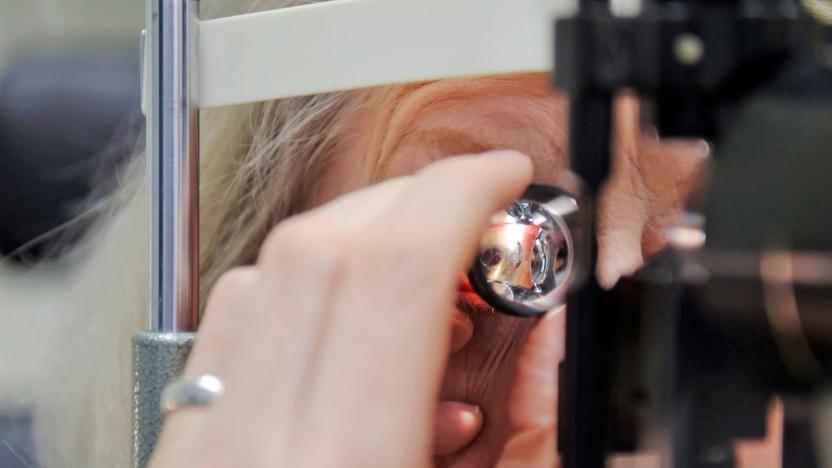
Magnetic eye implants could save the eyesight of glaucoma patients
Glaucoma patients can use implants to treat the condition by draining the eye, but the existing technology rarely lasts more than a few years thanks to the accumulation of microorganisms that wreck the functionality. A Purdue-led team might have a clever technological solution, though: magnetism. The group has developed a smart implant that cleans itself with microactuators that vibrate whenever you induce a magnetic field. It would not only be far more reliable, but could be customizable as well.
Jon Fingas11.12.2018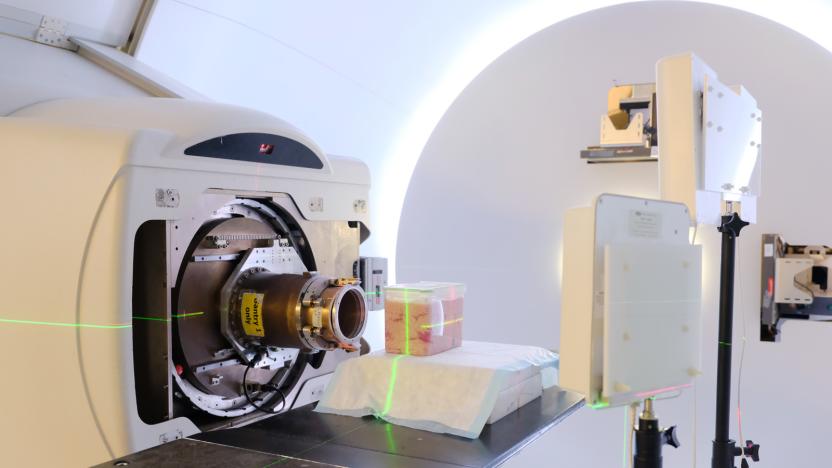
MIT's 'GPS' for the body can locate hidden implants
Implants are supposed to represent the future of medicine, as they can deliver medicine and track illnesses in ways that just aren't possible with conventional pills and scans. But there's a problem: how do you place them in deeper parts of the body without surgery or intrusive cameras? MIT's CSAIL might have an idea. It's developing a system, ReMix, that it likens to a GPS for implants. The locator doesn't need to make physical contact -- it just needs wireless signals and math.
Jon Fingas08.20.2018
Researchers treat ear defect by growing implants from cells
While scientists have been working on growing organs and body parts like ears for some time, researchers in China have taken it one important step further. They've grown new ears for five children with microtia -- an ear defect that results in small, underdeveloped ears and often affects hearing -- grafted them onto the children and continued to observe the development for over two years. The work is important because it's the first study of its kind and shows that these sorts of methods stand to be a viable option going forward.
Mallory Locklear01.31.2018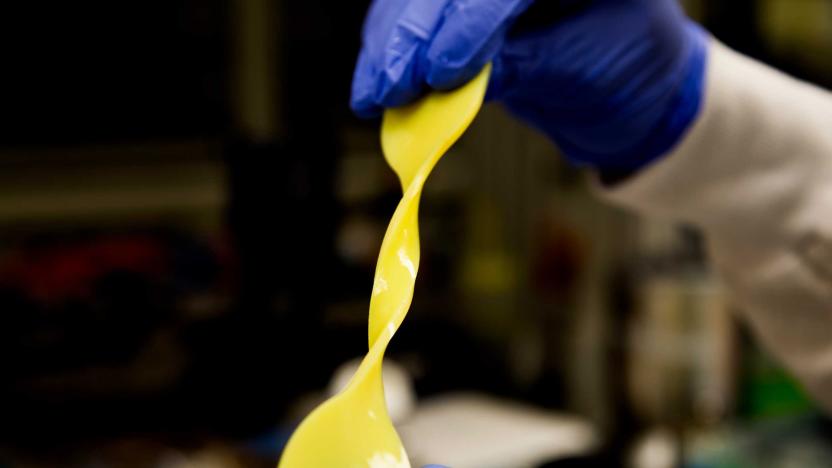
Kevlar cartilage could help you recover from joint injuries
It can be difficult to fully recover from knee injuries or other damage to your joints, if just because there hasn't been an artificial replacement for cartilage that can withstand as much punishment as the real thing. That may not be an issue in the long run, though: scientists have developed a Kevlar-based hydrogel that behaves like natural cartilage. It mixes a network of Kevlar nanofibers with polyvinyl alcohol to absorb water at rest (like real cartilage does in idle moments) and become extremely resistant to abuse, but releases it under stress -- say, a workout at the gym.
Jon Fingas11.19.2017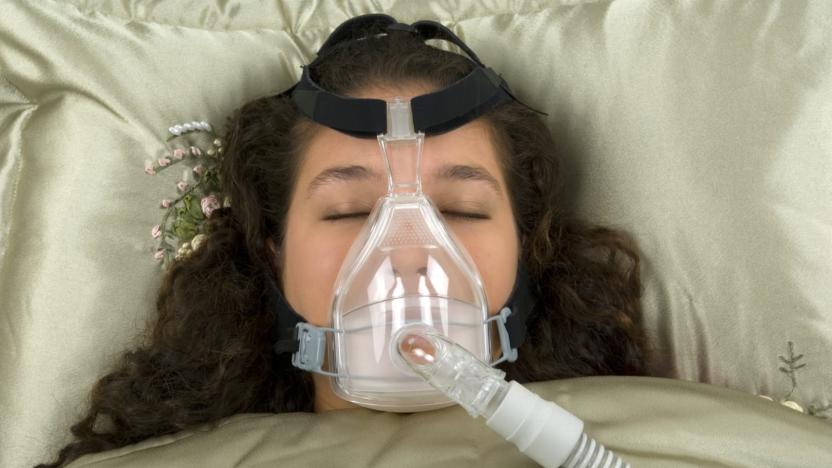
FDA clears implant that treats severe sleep apnea
Sleep apnea (where your brain doesn't properly send breathing signals while resting) is horrible enough by itself, but the solutions to it can be scary: you may have to take medication, rely on ungainly breathing machines or opt for invasive surgery. You might have a gentler treatment going forward, though. The US Food and Drug Administration has approved an implantable device, Respicardia's Remede System, that fights more serious cases of sleep apnea.
Jon Fingas10.08.2017